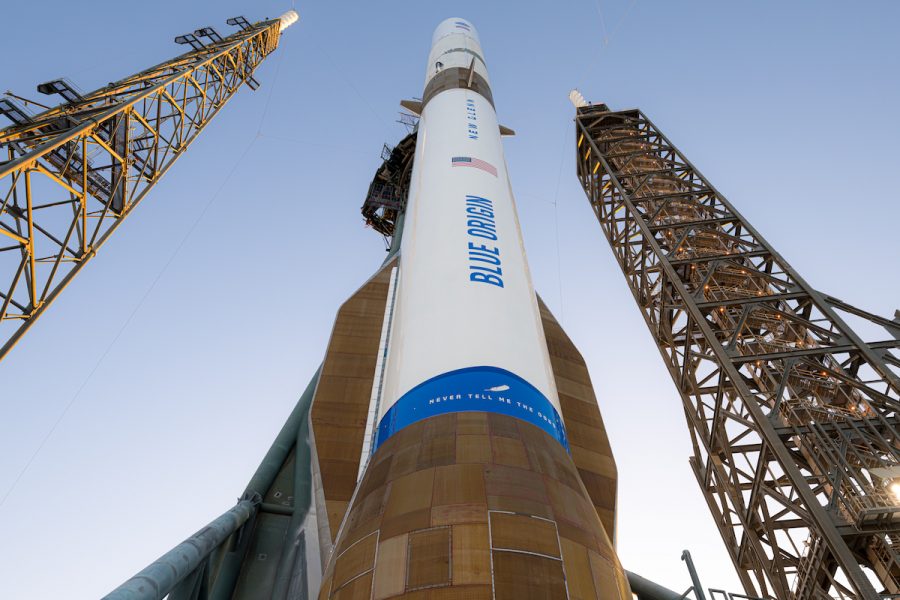The second launch of Blue Origin’s New Glenn rocket, which could clear a path to military certification, has been delayed due to severe solar storms.
The company was initially slated to launch two NASA satellites from Cape Canaveral Space Force Station, Fla., on Nov. 10, but that mission was canceled due to terrestrial weather concerns. This time, NASA called off the rocket’s rescheduled Nov. 12 flight due to space weather warnings. The agency has yet to identify a new launch window.
“New Glenn is ready to launch,” Blue Origin said in statement. “However, due to highly elevated solar activity and its potential effects on the ESCAPADE spacecraft, NASA is postponing launch until space weather conditions improve. We are currently assessing opportunities to establish our next launch window based on forecasted space weather and range availability.”
In recent days, the National Weather Service has observed multiple coronal mass ejections, essentially a burst of energy from the sun’s outer atmosphere. The fast-moving ejections are behind recent Northern Lights sightings, but they can also disrupt satellites, electronics, and communications. In a Nov. 11 statement, NWS said the “severe” levels of solar activity could have “detrimental impacts” to critical infrastructure.
For NASA, the risk of harm to the two Mars-bound ESCAPADE satellites slated to fly on the New Glenn mission was likely not worth an on-time launch. The spacecraft will study how solar wind interacts with Mars’ environment. The rocket will also carry a technology demonstration from Viasat that supports a separate NASA satellite communications program.
New Glenn is one of three companies selected to compete for launch orders for some of the Space Force’s most complex satellites under the National Security Space Launch program. In April, the service chose Blue Origin, United Launch Alliance, and SpaceX to launch 54 missions between 2027 and 2032.
Because Blue Origin, the lone new entrant chosen to compete, hasn’t completed the certification process for New Glenn, it hasn’t yet received a launch contract, but the Space Force expects it will fly up to seven of those 54 missions.
New rockets are generally required to fly twice before they become eligible to launch military payloads. New Glenn made its first flight in January, and the Space Force is expected to sign off on the rocket after a successful second launch. The certification process can take time, though—ULA’s Vulcan Centaur rocket was certified more than five months after its second launch.


